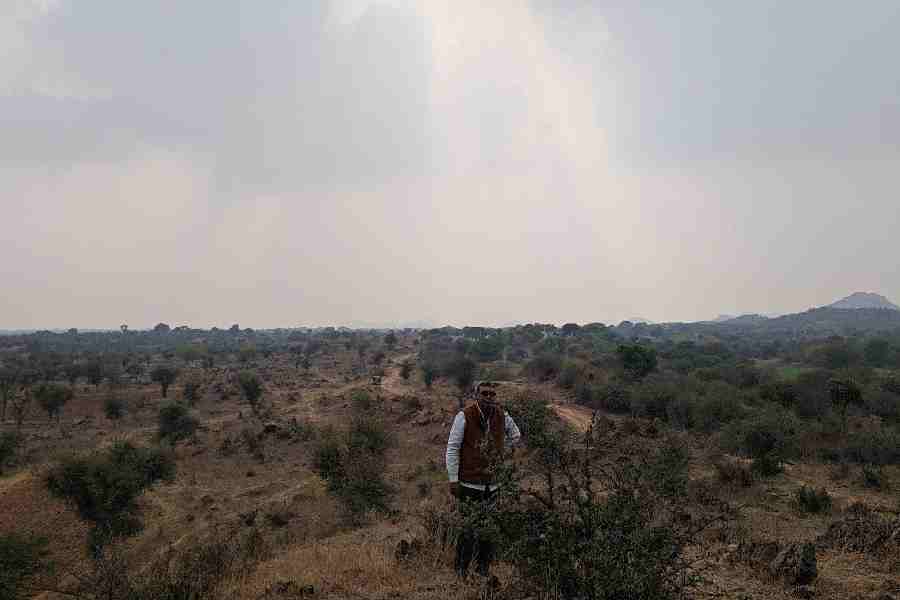 |
| Thengal Bhawan in Titabar. Telegraph picture |
Jorhat, Feb. 24: What could be a better way to witness the agrarian way of life first hand than to live right next to sprawling paddy fields, albeit in a guesthouse replete with all modern amenities?
Thengal Bhawan, a spacious guesthouse having deluxe and ordinary double rooms, a modern dining hall, a chandelier-lined conference area along with an arsenic and iron-free drinking water system, is just a 25km drive away from this Upper Assam town and boasts of a fantastic view — of 64 bighas of verdant tree-lined paddy fields.
An endeavour of the Thengal Kachari Autonomous Council, the guesthouse is located at Kesaikhatti Madhopur in Titabar and is part of a project aimed at promoting agro-tourism in the council area.
Formed through passage of the Thengal Kachari Autonomous Council Bill in the Assam Assembly on August 12, 2005, the council operates in pockets within Jorhat, Dibrugarh, Lakhimpur, Dhemaji and Golaghat districts, covering a population of about 1,75,000. It has 34 departments under it.
Bipul Kachari, a member of the council, said a swimming pool as well as a mini open-air stage to hold events would be added to the guesthouse complex shortly. Solar energy will be used to power parts of the complex. Three fisheries are also under construction on water bodies dotting the area along with a dairy farm.
He said anybody could come here and spend a few idyllic days and sample the pleasures of country life. One could also visit the Gibbon wildlife sanctuary nearby that has the unique distinction of being home to seven primate species.
“We grow paddy for seeds only, and the state government buys these from us. Both mechanised and manual ploughing is practised in the field here,” he said.
The council has another ambitious project on the anvil — a tea tourism destination.
At Mordholi Kachari Gaon, a 15-odd-km drive down Na-Ali from here towards Titabar, a recreational-cum-children’s park is being given a facelift. The park already has a cafeteria and a children’s play area, with swings and seesaws and a fountain, is under construction. An offshoot of the Dholi rivulet has been dammed and a pathway, shaded by sishu and other trees, has been built around the 60-bigha plot alongside the rivulet. Go deeper and the ground gently slopes down towards a tea garden.
Though the garden does not belong to the council, it is the primary focus of the project.
The council’s chief executive member, Kumud Kachari, told The Telegraph that the two projects were aimed at getting more government funds to allow the council to become self-sufficient.
He said if funds permitted, a chang ghar (house on stilts) with rooms for overnight stay would be constructed overlooking the garden. Visitors can stay there and actually have a bird’s eye view of the life of a tea garden.
There is also a maidam, the burial mound of Neog Phukan of the Ahom era, near the park that tourists can visit.
Regarding the activities taken up by the council since its formation, the chief executive member said, “In the past eight years, we have distributed free study material to our students, given them scholarships and other reading material and booked seats for eligible students in Prince of Wales Institute of Engineering and Technology to give them technical education. Women have been given free yarn for weaving and we have also have taken up various sanitation and housing schemes in these areas. Unemployed youths have been given 50 per cent subsidy to buy cars and be self-employed by plying taxis. Tubewells or hand pumps have been given to every five household and training has been imparted on bamboo crafts. Girls are sent to Sualkuchi to learn traditional textile designs and weaving and looms have been distributed among small entrepreneurs.”











